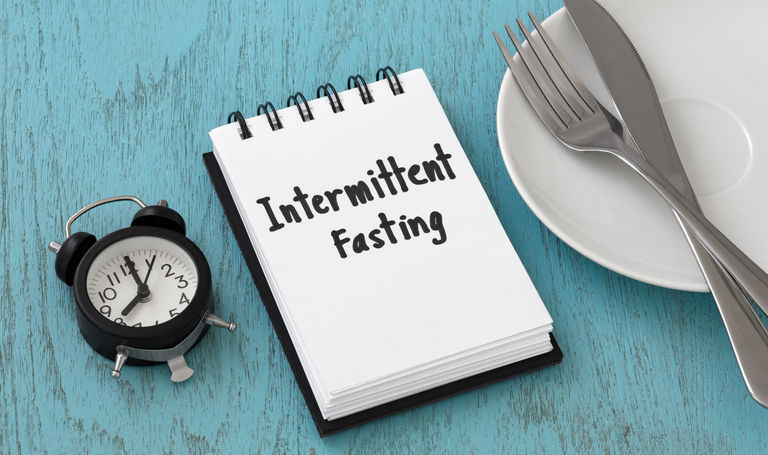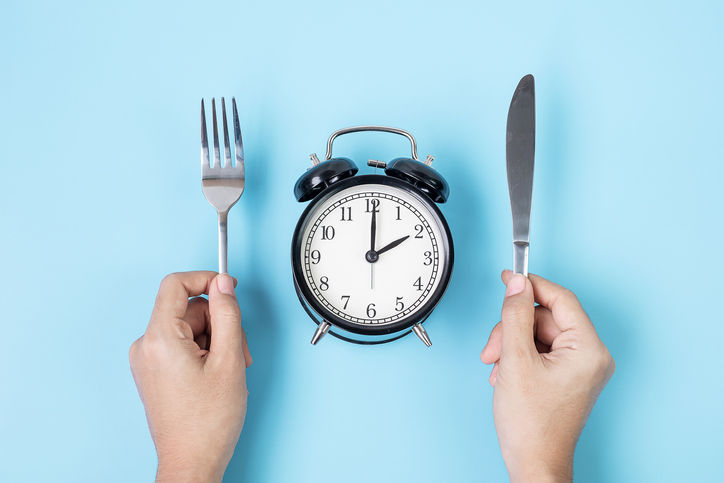Intermittent Fasting – What and When to Eat Part II
- Michael Furci, NP

- May 12, 2022
- 4 min read
Updated: May 19, 2022

Dieting is ineffective because it does not address the hormonal dysfunction of gaining weight. Without addressing the hormonal cause of obesity, we transform it into a character flaw. How often have you heard somebody else say about someone who’s overweight, “Wow, she let herself go.” Or “If he would just stop eating so much, he would lose weight.” Too often, we see overweight/obese individuals as lazy and undisciplined. I’m not saying that people don’t overeat or aren’t lazy. However, the obesity epidemic is much more insidious than a character flaw.
Anyone who has been on a diet has changed what they eat, which is one of two crucial components of long-term weight loss. Changing what we eat fails to address long-term insulin resistance. When to eat, or fasting, is the most effective way to resolve the hormonal dysfunction associated with weight gain and the obesity epidemic.
Insulin resistance keeps our insulin levels chronically elevated. Higher insulin levels lead to a higher body set point, and a higher body set point mercilessly destroys our weight loss efforts. Insulin resistance is also closely tied to leptin resistance, another significant component of the weight gain hormonal equation. Higher leptin levels make us feel hungrier as we diet. So, we have higher insulin levels storing more food as fat, and we have higher leptin levels making us hungrier as we diet. What could be worse for someone trying to lose weight? Well, as time goes on, our metabolic rate slowly erodes, causing weight loss plateaus inevitably leading to diet failure. Success can only be achieved by breaking the cycle of hormonal dysfunction caused by insulin resistance.
When To Eat
High insulin levels fuel insulin resistance. To stop the cycle of insulin resistance, we must have intermittent periods of low insulin levels. Changing what we eat will help lower high insulin levels but does little to lower them enough to be effective. So how do we induce low insulin levels to restore insulin sensitivity? Fasting.
What Is Fasting
Fasting is the act of voluntarily abstaining from food. A fast can last from a few hours to a month or more. You can start a fast at any time and stop whenever you choose. Anytime you are not consuming food, you are technically fasting.
There is no established duration or time of day that defines a fast. For instance, you can fast between dinner and breakfast the next day. If dinner ended at 7 p.m. and breakfast the next day was at 7 a.m., you fasted twelve hours, the standard before the obesity and diabetes epidemics.
Through multimillion-dollar ad campaigns, the food industry has changed America into a nation of grazers. Nutritional gurus and the government have convinced the public that skipping one meal, especially breakfast, will have dire consequences. How many times have you heard the following?
Always eat a good breakfast. It’s the most important meal of the day.
Never skip a meal.
Snacking in between meals is good for you.

The truth is, there is no proof that continuous feeding improves health.
What Happens When You Fast?
We use and store food when we eat. When fasting, insulin levels decrease, and we start to burn the stored energy. We are either storing food as energy or burning stored energy. Blood glucose levels rise as we metabolize food during the fed state, causing the pancreas to secrete insulin to move glucose from the blood into the cells. Even slight increases in insulin levels have been shown to halt lipolysis (breakdown of fat). During the fasted state, blood glucose levels drop, and lipolysis increases. You can start to see how snacking can sabotage your weight loss efforts.
Periods of no food availability are a part of human history. Our bodies have mechanisms to ensure optimal health when food is not available. If this were not true, the human species would never have survived. Fasting employs our natural adaptive mechanisms.
Types of Fasts
Fasts are usually classified as either short (less than 24 hours) or long (more than 24 hours).
12 Hour Fasts
12 Hour Daily Fasts were the norm until the mid-1970s, consisting of three meals per day with no snacks. They also ate a lower carbohydrate diet with meat, eggs, and dairy products. Eating in this manner was enough to prevent most Americans from becoming obese because it allows for low insulin levels each day.
Combining a daily 12-hour fast with a lower carbohydrate diet that includes grass-fed animal products and organic vegetables is a great way to lose weight, prevent insulin resistance, and improve and maintain your health. However, it may not be a strong enough diet for somebody very overweight or obese.

16 Hour Fast
This fast shortens the eating window to eight hours per day. For example, you can fast from 8 p.m. to 12 p.m. the next day. When the eating window is reduced below 12 hours, many refer to it as time-restricted eating. While doing eight-hour time-restricted eating, you can eat two or three meals.
Eight-hour time-restricted eating is convenient and painlessly incorporated into daily life. Most people do not feel hungry in the morning and find skipping breakfast and eating lunch and dinner simple.
Although eight-hour time-restricted eating is a more potent regimen than the 12-hour fast, you still need to combine it with a lower carbohydrate diet for best results. If you have a lot of weight to lose, a 16-hour fast or more is most beneficial for you because it is the best way to reverse insulin resistance.
20 Hour Fast
The four-hour time-restricted eating window is more robust than the eight-hour eating window. If you have a significant amount of weight to lose, I recommend alternating between a 16 and 20-hour fast. Many start to reap such good benefits from longer fasts; they do 20 or more hour fasts exclusively.
Remember that the amount of time you fast each day when you eat is up to you. And the type of food you consume or what you eat is equally important. Many view fasting as a daunting task, however, it’s not nearly as difficult as most people think.
Stop thinking about becoming healthy and do it. Stop procrastinating and get started now. If you don't know where to start, call for a free consultation. You’ll be highly pleased with the lasting results.
Recommended supplements:
Michael Furci is a Family Nurse Practitioner at Tenpenny Integrative Medical Center. To make an appointment call (440)239-3438.






Comments